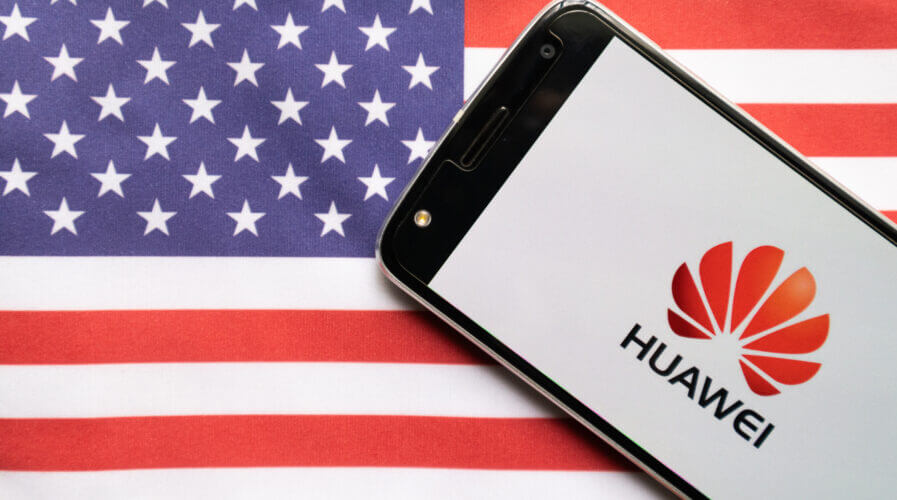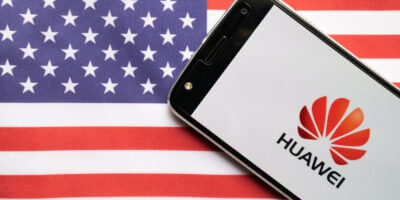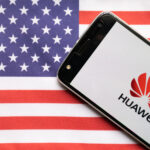
The US is not done hobbling Huawei — a complete ban is looming around the corner(Source – Shutterstock)
The US is not done attacking Huawei — a complete ban is looming around the corner
- The US is inching closer to imposing a total ban on the sale of American tech to Huawei.
- The commerce department had notified some companies that it would no longer grant licenses to any group wanting to export American technology to Huawei.
Huawei Technologies Co Ltd has been in the crosshairs of the United States (US) for a few years now, and the Chinese tech giant is a leading example of America taking a tough stand against China. It started escalating in 2019 when the Trump administration imposed harsh restrictions on exporting US technology to Huawei by adding the Chinese giant to a blacklist called the “entity list.”
Initially, the move was part of a strategy to crack down on Chinese companies that Washington believed posed a risk to American national security. However, that slowly progressed to crippling China’s dominance in the global technology arena. The upside, until recently, was that the commerce department continued to grant export licenses for some companies, including Qualcomm and Intel, to provide Huawei with technology unrelated to high-speed 5G telecom networks.
Yet, since President Joe Biden took office two years ago, his administration has taken an even tougher stance on China, particularly in the area of cutting-edge technology. In October last year, Biden imposed sweeping restrictions on providing advanced semiconductors and chipmaking equipment to Chinese groups.
While many would have thought the situation couldn’t get any worse for Huawei, the US is proving otherwise. The latest is that the Biden administration plans to go all out on its restriction on Huawei, cutting off the Chinese company from all its American suppliers, including Intel Corp. and Qualcomm Inc.
“Sales from US firms to Huawei have been limited for four years since former President Donald Trump added the Shenzhen, China-based company to the so-called US “entity list” out of national security concerns. US suppliers have since required government approval to sell to the telecom equipment giant,” the report by Bloomberg stated.
Calls for a complete ban on Huawei in the US.
As the administrations are debating how and whether to adjust their licensing policy, people familiar with the matter say some officials have been advocating for the complete ban of all sales to Huawei. Although tensions with China have been rising throughout Biden’s presidency, he has been under growing pressure from Republicans controlling the House to continue tightening against Beijing, particularly to limit the country’s technological advances.
In the US’ relentless effort to stifle China’s rise, the Biden administration persuaded the Netherlands and Japan last week to join the US in restricting exports of advanced semiconductor manufacturing machinery to China. Despite the fact that Trump’s ban on certain sales wiped out vast amounts of revenue for US suppliers, Biden’s administration continues its pursuit against Huawei and China at large.
For context, Huawei was once one of the world’s largest buyers of electronic components and a hugely important part of the supply chain because of its position in the handset and networking equipment industries. “Under the new policy some officials advocate, all license requests to supply the company would be denied. Meanwhile, most current applications for new licenses are languishing in a stalled approval process, the people said, creating a de facto halt,” according to Bloomberg.
It’s also likely that Huawei has been stockpiling foreign components such as chips and sourcing or researching alternatives to American circuitry. Huawei relies on the US, Intel, and Advanced Micro Devices Inc. to provide the processors it uses in its Mate laptops. At the same time, Qualcomm sells Huawei processors and modems that are the core components of its diminished range of smartphones.
READ MORE
- Ethical AI: The renewed importance of safeguarding data and customer privacy in Generative AI applications
- How Japan balances AI-driven opportunities with cybersecurity needs
- Deploying SASE: Benchmarking your approach
- Insurance everywhere all at once: the digital transformation of the APAC insurance industry
- Google parent Alphabet eyes HubSpot: A potential acquisition shaping the future of CRM


